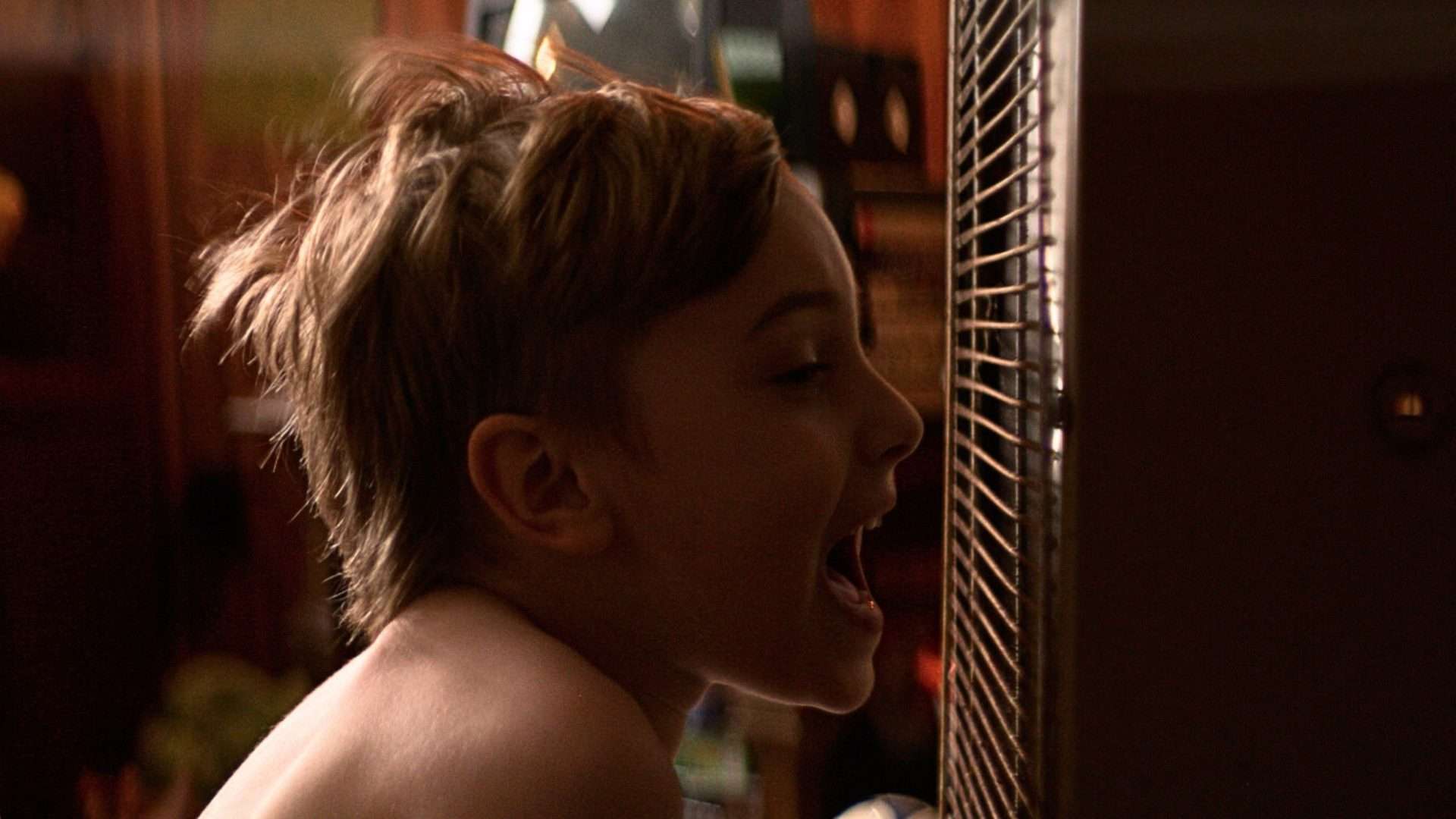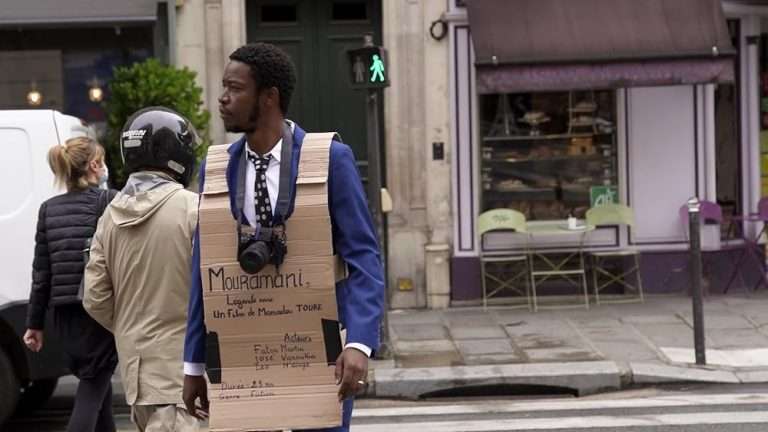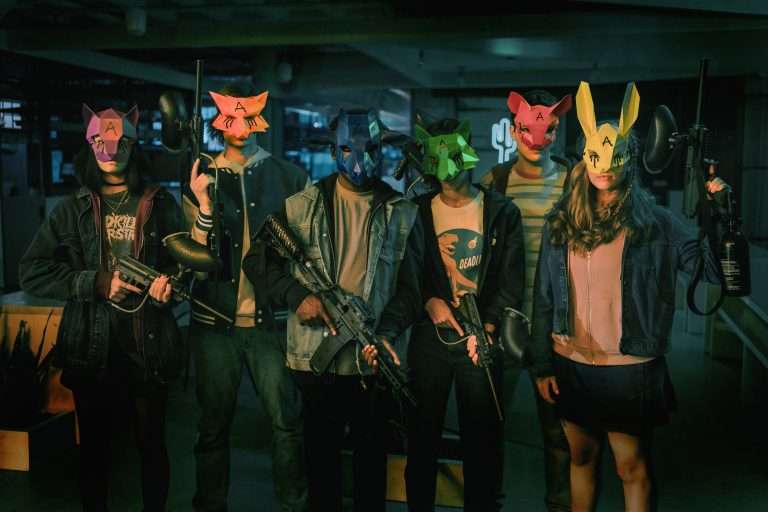In Kathryn Bigelow’s “Strange Days,” the cusp of the millennium promises beauty and chaos. There’s a sliver of hope urging the populace of L.A. to dream about better days, but the dark cloud of rampant digital addiction and social injustice looms as the clock strikes 12. For those standing at this cusp, the 2000s were heralded as a time of change, and it was, in some ways. But it was also a decade that heightened anxieties like never before, especially in America, with the aftereffects of 9/11 and an alarming financial crisis permeating the lives of many. Even on a macrocosmic level, the 2000s were a rather mean-spirited decade, spotlighting problematic attitudes that were exacerbated due to an internet culture that (still) rewards bad-faith cynicism.
Jacy Mairs’ “Trash Baby” explores a hyper-specific aspect of said 2000s culture, examined through the lens of a coming-of-age tale that relishes in the uncomfortable emotions that accompany growing pains. Bittersweetness is the mantra that dominates adolescence, and 12-year-old Stevie (Esther Harrison) experiences the thrills and dangers of growing up in a world that is always poised to harm and belittle. The year is 2003, and Pine Park is experiencing a scorching summer, which feels sweeter for the kids jumping happily on a trampoline and visiting the local supermarket for an afternoon ice cream swirl. Mairs’ frames these blissful childhood emotions as an entry point into Stevie’s perspective, lingering on the innocence of singing into an air cooler with her little brother before bleak reality invades.
On Stevie’s 13th birthday, she is surrounded by friends and neighbors at the bowling center while her divorced parents bicker and fume, casting a shadow of gloom on her face. Her outlook of the world is both impressionable and fixed, as she has gleaned essential truths about human relationships from the people around her. As the film progresses, we see Stevie internalize many behaviors while struggling to form her own worldviews; she has perennially witnessed parental figures live out fractured lives and ardently believes that she will end up different.
After all, who doesn’t want to escape the trappings of the small towns they grew up in, lulled by the unimaginable beauty of a California postcard? The 20-something adults she looks up to as role models, however, are not as perfect as they seem, just like how the broken adults in her home aren’t as imperfect as she perceives them to be.
To be flawed is to be human, but a culture of reactionary bullying and knee-jerk meanness seeps into Stevie’s exploration of what adulthood might taste like. The only beacon of gentle kindness is 20-year-old Edie (Chloe Kraemer), Stevie’s neighbor who also lives in a trailer and appears to her as the ultimate embodiment of coolness. Edie’s presence is affirming for Stevie, especially when she bejewels her eyes with glitter or shares her clothes with her, forming a sweet bond that makes Stevie feel seen.

But Edie’s friends are comprised of adults who wear their brazen lack of empathy on their sleeves, shamelessly belittling one another and the world at large for the heck of it. Stevie’s desperate attempts to fit in and become one of them take the form of a downward spiral, as these adults do not care about shielding a child from cruelty. Instead, they revel in it, taking advantage of her naivete, pretending as if their heartless irreverence amounts to something revolutionary. This is where the bile coagulates in the form of casual misogyny and rape culture, and Stevie is left to flounder alone when she attempts to grapple with these concepts. Even when considerate adults like Brad (Eddie Lee Wollrabe) try to help, she pushes them away in frustration.
Stevie’s escalating meanness, which she absorbs via social osmosis while hanging out with these adults, is not her fault. But she must take responsibility for her behavior, as growing up comes with the choice of discernment, of choosing what kind of person you want to be. Once the rose-tinted glasses of idolized romanticization come off, Stevie gradually understands that superficiality and meanness won’t help her stand apart or escape a small town that never changes. She must accept who she is and navigate her shame, her insecurities, and her prejudiced perception of people. Only then can she triangulate who she is and explore what truly brings joy to her soul.
Esther Harrison is the beating heart of “Trash Baby,” rendering every perceptible micro-emotion of a confused, hopeful teenager to beautiful, heartbreaking effect. Adolescence is not a monolithic concept, as no two teenagers undergo the same struggles with identity, and Esther’s Stevie captures this notion with incredible, effortless nuance. The world of growing up, which seems magical and dizzying to a teenage girl dreaming about older boys, drinking at parties, and being perceived as cool, is fleshed out as a wide emotional spectrum.
One moment, Stevie is laughing with her little brother, fondly participating in the innocence of childhood, and in another, she is kissing her reflection, lost in the fantasy of a budding crush. Her innate shyness — and sweetness — often gives way to bursts of mean-spirited behavior, where she disregards someone else’s feelings to belong to a clique of adult bullies. Harrison makes these behavioral oscillations seem truly effortless in a saga of a teenage girl experiencing horrors while containing frightening multitudes.



![Cars 3 [2017]: Surprisingly Well-Made & Emotionally Involving](https://79468c92.delivery.rocketcdn.me/wp-content/uploads/2017/11/cars-3-768x384.jpg)
![The Hound of The Baskervilles [1959] Review – The weirdest Sherlock Holmes Adaptation is also the best](https://79468c92.delivery.rocketcdn.me/wp-content/uploads/2021/05/The-Hound-of-the-Baskervilles-1959-highonfilms-2-768x443.jpg)
![Double Walker [2021] Review – Vengeful ghost story is unsure where it’s headed](https://79468c92.delivery.rocketcdn.me/wp-content/uploads/2021/11/Double-Walker-1-highonfilms-768x326.jpg)


